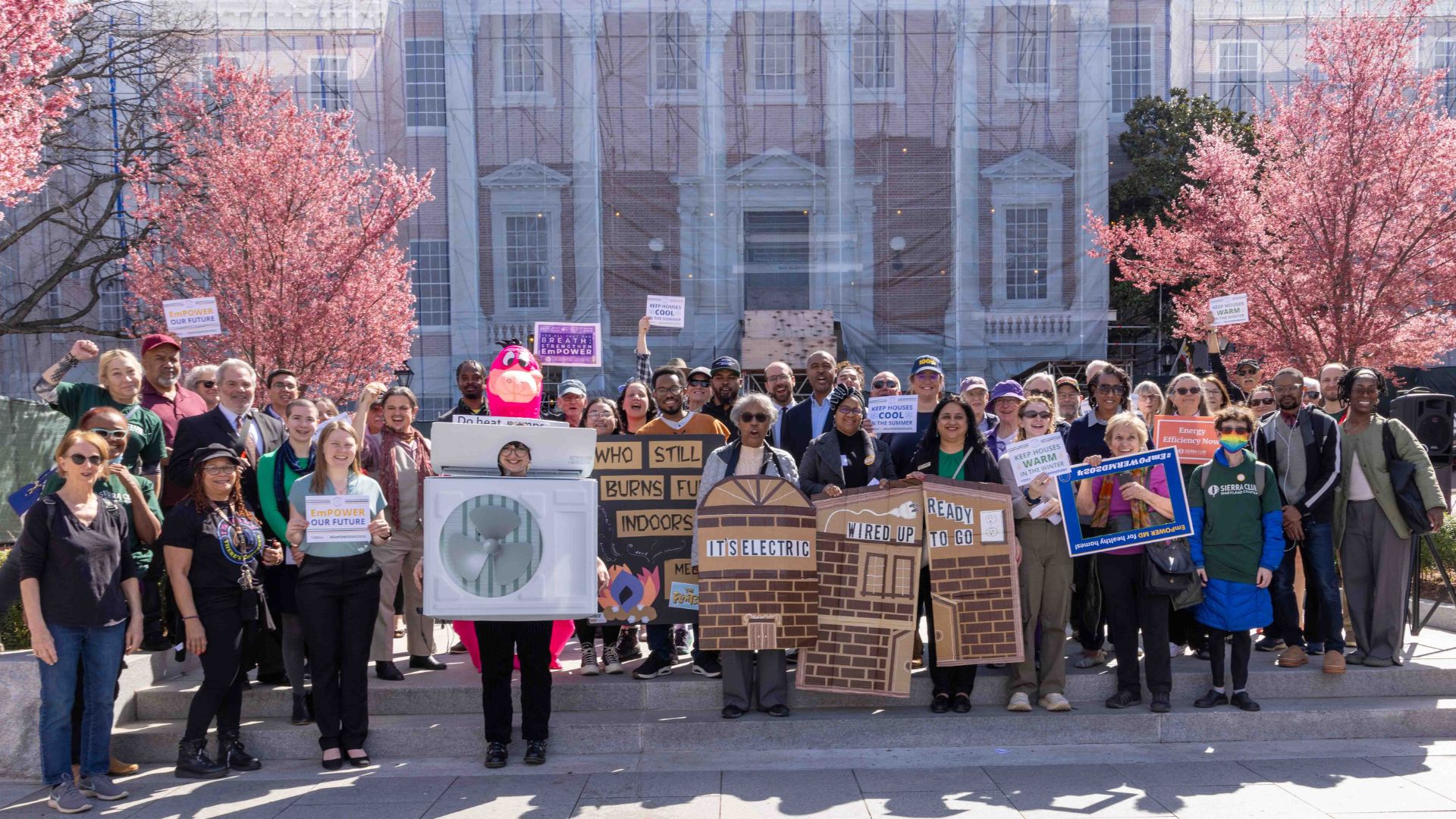
Testimony: No Cash for Trash
No matter where you stand on the merits of incineration as a waste management tool, however, we should all agree that it should not qualify for financial incentives as a clean energy tool.
SB560 / HB438 – Renewable Energy Portfolio Standard – Eligible Sources
Position: Favorable
Maryland’s reliance on polluting energy puts our health and safety at risk. The growth of cleaner energy technologies in Maryland benefits our environment, our health, and our economy. For nearly a decade so-called “waste to energy” or trash incineration has been categorized as a Tier 1 Renewable Energy Source in Maryland’s Renewable Portfolio Standard. It’s time to remove this categorization to ensure subsidies are used to promote Maryland’s transition to clean, renewable energy.
Simply put: trash incineration is not clean, nor does it produce much energy. Unfortunately, it also puts public health at risk and undermines our ability to transition to a zero waste economy.
No matter where you stand on the merits of incineration as a waste management tool, however, we should all agree that it should not qualify for financial incentives as a clean energy tool.
Public Health Impacts: According to our 2019 report, ”The State of Recycling in America,” emissions from incinerators include carcinogens and neurotoxins, as well as contaminants that can cause or aggravate respiratory problems, particularly among children, the elderly, and those with pre-existing respiratory problems.
Just one of Baltimore’s incinerators produced 64% of the nitrogen oxide pollution emitted from smokestacks in the city in 2014. Nitrogen oxide pollution has been linked to asthma. Baltlimore’s asthma rate is almost 50% higher than the national average in adults and more than double the national average in children. We should not be subsidizing incineration under the guise of “clean energy.”
Climate Impacts:
According to our 2019 report ”The State of Recycling in America,” for every metric ton of plastic burned in an incinerator, 1,980 pounds of carbon dioxide (CO2) equivalent are released. That’s nearly 15 times more than if the ton of plastic waste was landfilled.
Maryland has goals to reduce our greenhouse gas emissions and to move away from polluting sources of energy. We have great options – our report on the rise of renewable energy shows that in the last decade, solar energy production in Maryland has increased by 35,090% and wind-powered energy by 550%. If the credits currently funding energy from incineration went to truly renewable sources, we could see even larger growth in these areas. With clean, renewable energy technology improving by the day, there is no reason to continue propping up something as toxic as trash incineration.
Impact on Zero Waste:
In order to get our trash problem under control we need to support policies that are dedicated to the principles of reduce, reuse, and recycle. Unfortunately, incinerators require a steady stream of waste, and many contracts actually require set amounts of waste, which undermines our attempts to reduce waste. It would be far better to reduce waste though diversion that to be locked into contracts with incinerators.
According to a 2019 report from Maryland PIRG, food waste and yard trimmings make up 30 percent – nearly one-third – of the material that is landfilled or incinerated.
Financial Impact:
Renewable energy credits should be used to promote the energy of our future, like wind and solar, not the energy of our past. Subsidizing incineration pulls resources away from wind and solar projects that could actually reduce greenhouse gas emissions.
Incinerators also contribute to costly externalities. In 2017, the Chesapeake Bay Foundation estimated that one trash incinerator engendered almost 22 million dollars of medical expenses in Maryland every year.
We urge you to vote favorably.
Topics
Authors
Emily Scarr
State Director, Maryland PIRG; Director, Stop Toxic PFAS Campaign, PIRG
Emily directs strategy, organizational development, research, communications and legislative advocacy for Maryland PIRG. Emily has helped win small donor public financing in Baltimore City, Baltimore County, Howard County, Montgomery County, and Prince George's County. She has played a key role in establishing new state laws to to protect public health by restricting the use of antibiotics on Maryland farms, require testing for lead in school drinking water and restrict the use of toxic flame retardant and PFAS chemicals. Emily also serves on the Executive Committees of the Maryland Fair Elections Coalition and the Maryland Campaign to Keep Antibiotics Working. Emily lives in Baltimore City with her husband, kids, and dog.
Find Out More

2024 Maryland Legislative Session: Wins and Losses

Electric and gas utilities spend millions on political influence in Maryland

The EmPOWER Maryland Energy Efficiency Act needs an update

